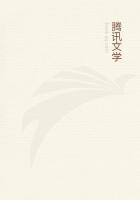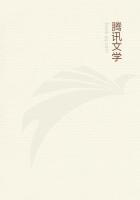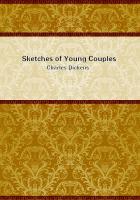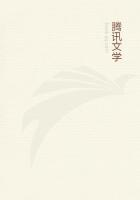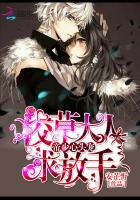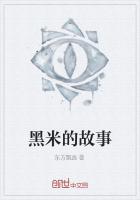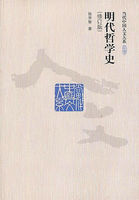It could not have been more than half an hour after the disappearance of the Italian boy, with his unseasonable melodies, when a cab drove down the street. It stopped beneath the Pyncheon Elm; the cabman took a trunk, a canvas bag, and a bandbox, from the top of his vehicle, and deposited them on the doorstep of the old house; a straw bonnet, and then the pretty figure of a young girl, came into view from the interior of the cab. It was Phoebe! Though not altogether so blooming as when she first tripped into our story, --for, in the few intervening weeks, her experiences had made her graver, more womanly, and deeper-eyed, in token of a heart that had begun to suspect its depths,--still there was the quiet glow of natural sunshine over her. Neither had she forfeited her proper gift of ****** things look real, rather than fantastic, within her sphere. Yet we feel it to be a questionable venture, even for Phoebe, at this juncture, to cross the threshold of the Seven Gables. Is her healthful presence potent enough to chase away the crowd of pale, hideous, and sinful phantoms, that have gained admittance there since her departure? Or will she, likewise, fade, sicken, sadden, and grow into deformity, and be only another pallid phantom, to glide noiselessly up and down the stairs, and affright children as she pauses at the window?
At least, we would gladly forewarn the unsuspecting girl that there is nothing in human shape or substance to receive her, unless it be the figure of Judge Pyncheon, who--wretched spectacle that he is, and frightful in our remembrance, since our night-long vigil with him!--still keeps his place in the oaken chair.
Phoebe first tried the shop-door. It did not yield to her hand;and the white curtain, drawn across the window which formed the upper section of the door, struck her quick perceptive faculty as something unusual. Without ****** another effort to enter here, she betook herself to the great portal, under the arched window.
Finding it fastened, she knocked. A reverberation came from the emptiness within. She knocked again, and a third time; and, listening intently, fancied that the floor creaked, as if Hepzibah were coming, with her ordinary tiptoe movement, to admit her.
But so dead a silence ensued upon this imaginary sound, that she began to question whether she might not have mistaken the house, familiar as she thought herself with its exterior.
Her notice was now attracted by a child's voice, at some distance. It appeared to call her name. Looking in the direction whence it proceeded, Phoebe saw little Ned Higgins, a good way down the street, stamping, shaking his head violently, ****** deprecatory gestures with both hands, and shouting to her at mouth-wide screech.
"No, no, Phoebe!" he screamed. "Don't you go in! There's something wicked there! Don't--don't--don't go in!"But, as the little personage could not be induced to approach near enough to explain himself, Phoebe concluded that he had been frightened, on some of his visits to the shop, by her cousin Hepzibah; for the good lady's manifestations, in truth, ran about an equal chance of scaring children out of their wits, or compelling them to unseemly laughter. Still, she felt the more, for this incident, how unaccountably silent and impenetrable the house had become. As her next resort, Phoebe made her way into the garden, where on so warm and bright a day as the present, she had little doubt of finding Clifford, and perhaps Hepzibah also, idling away the noontide in the shadow of the arbor. Immediately on her entering the garden gate, the family of hens half ran, half flew to meet her;while a strange grimalkin, which was prowling under the parlor window, took to his heels, clambered hastily over the fence, and vanished.
The arbor was vacant, and its floor, table, and circular bench were still damp, and bestrewn with twigs and the disarray of the past storm. The growth of the garden seemed to have got quite out of bounds; the weeds had taken advantage of Phoebe's absence, and the long-continued rain, to run rampant over the flowers and kitchen-vegetables. Maule's well had overflowed its stone border, and made a pool of formidable breadth in that corner of the garden.
The impression of the whole scene was that of a spot where no human foot had left its print for many preceding days,--probably not since Phoebe's departure,--for she saw a side-comb of her own under the table of the arbor, where it must have fallen on the last afternoon when she and Clifford sat there.
The girl knew that her two relatives were capable of far greater oddities than that of shutting themselves up in their old house, as they appeared now to have done. Nevertheless, with indistinct misgivings of something amiss, and apprehensions to which she could not give shape, she approached the door that formed the customary communication between the house and garden. It was secured within, like the two which she had already tried. She knocked, however; and immediately, as if the application had been expected, the door was drawn open, by a considerable exertion of some unseen person's strength, not wide, but far enough to afford her a side-long entrance. As Hepzibah, in order not to expose herself to inspection from without, invariably opened a door in this manner, Phoebe necessarily concluded that it was her cousin who now admitted her.
Without hesitation, therefore, she stepped across the threshold, and had no sooner entered than the door closed behind her.

